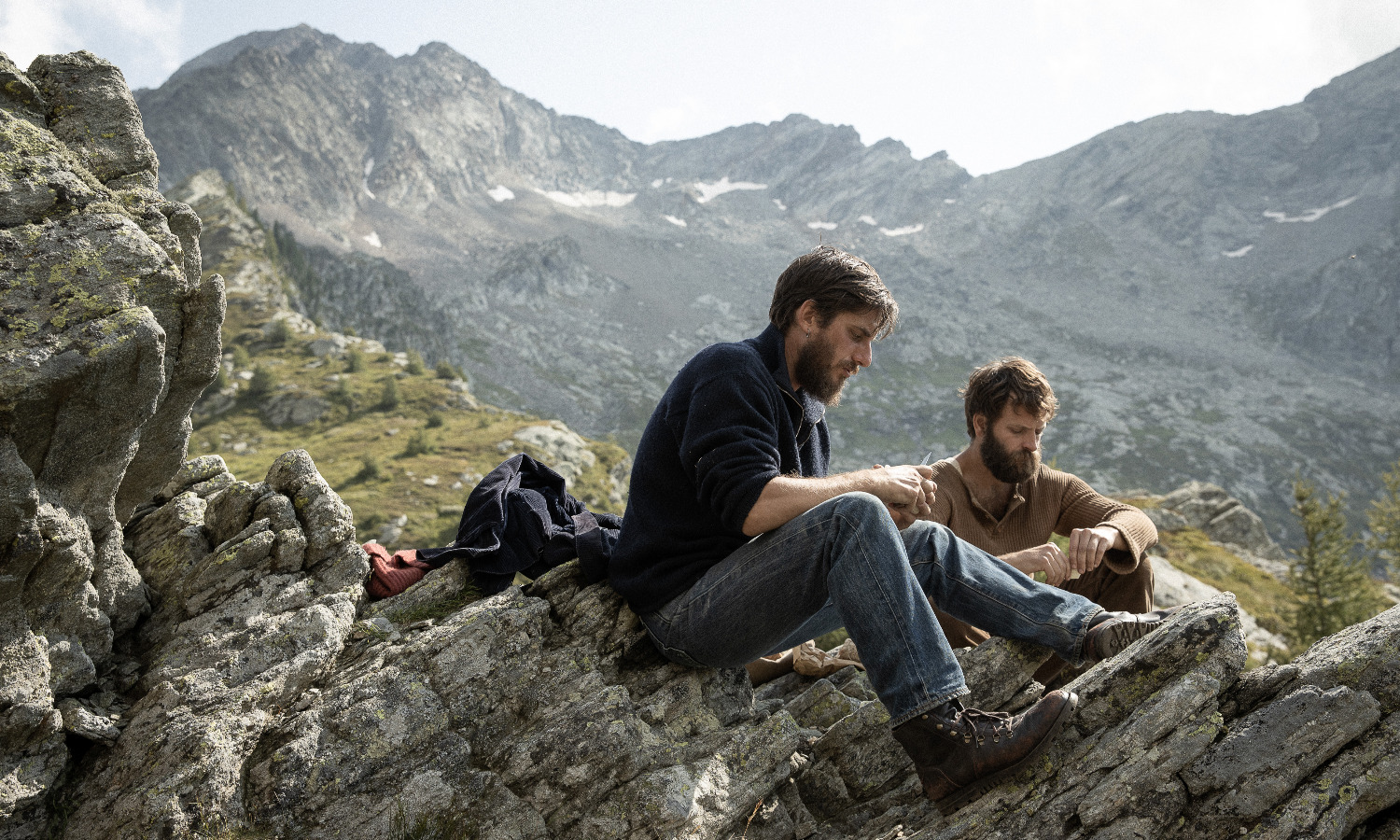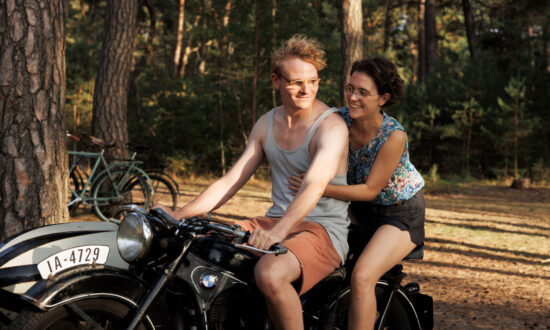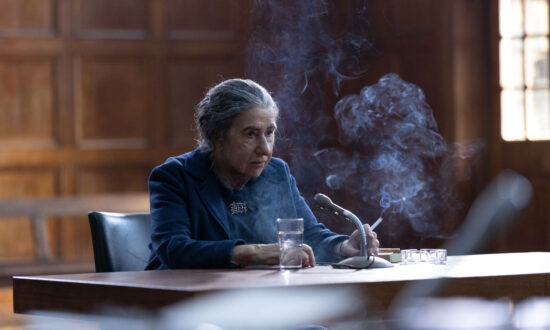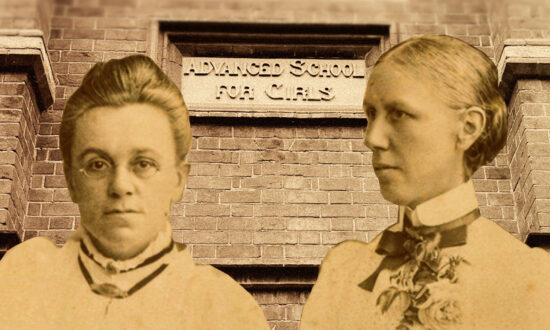Two boys strike up what becomes a lifelong friendship one summer in a small mountain village in north-west Italy. Pietro is visiting the Alps from Turin while Bruno lives there year round, helping his uncle run the dairy while his father works abroad. Together, the eleven-year-olds roam and explore and delight in each other’s company. They pick up again next summer, only Pietro’s parents make a clumsy offer to bring Bruno to Turin so he can have a proper education. Pietro is conflicted. “He’s my friend, not yours,” he tells them.
It never happens and the boys drift apart but Pietro is drawn back to the mountain as an adult. His father, an engineer who used to take them hiking, has died and left a dilapidated ruin in a stupendous location high in the mountains overlooking a deep valley. The friendship between two older, bearded men is cemented as they follow Pietro’s father’s wishes and build a simple summer house from Bruno’s labour and the materials Pietro brings up on donkeys.
This long and wonderful film about two men finding their place in the world is the work of Belgian husband and wife Felix Van Groeningen and Charlotte Vandermeersch, whose 2012 film, Broken Circle Breakdown, was a shattering story of an intense love affair that derails. Based on a best-selling novel and narrated by Pietro, this long and sometimes meandering adaptation invests time in savouring the beauty of the mountains and the strength of Bruno and Pietro’s bond.
The men evolve at a different pace. Bruno (Alessandro Borghi) embraces his dream of becoming a montanaro, an old-style artisan cheesemaker, whose wife Lara (Elisabetta Mazzullo) takes the produce to market. In the face of their purposeful life, Pietro (Luca Marinelli) feels adrift. He is half the age of his father when he died – a man he badly misunderstood and was estranged from at the time of his death – but has no family or job. “I am part man, part boy,” he tells Bruno.
It emerges that while Pietro travelled overseas, Bruno and Pietro’s father had become close and would hike together up the mountains and onto the glacier where Pietro as a boy was too scared to go. Pietro knew his father admired Bruno’s physical ease and has to accommodate knowing their relationship flourished without him.

Get InReview in your inbox – free each Saturday. Local arts and culture – covered.
Thanks for signing up to the InReview newsletter.
When Pietro finds a home on a different mountain far away, the philosophical question touched on in the title comes to the fore: is it better for a man to find himself by staying at home and getting to know one mountain, or should he leave and explore the eight mountains and the seas?
Bruno and Pietro make their choices and Pietro respects Bruno’s certainty while Bruno admires the adventurous Pietro. They know each other like no one else and together on the mountain, they are at home.
The ending is particularly affecting. This unusual and beautifully acted film, winner of the 2022 Jury Prize at Cannes, has a meditative quality rare in contemporary films.
The Italian Film Festival continues at Palace Nova East End and Prospect until October 25.
Support local arts journalism
Your support will help us continue the important work of InReview in publishing free professional journalism that celebrates, interrogates and amplifies arts and culture in South Australia.
Donate Here




